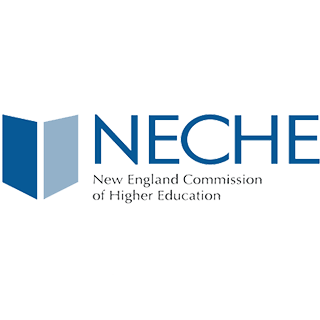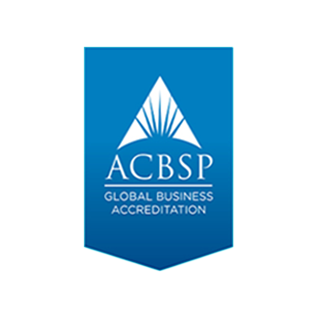For Jazzmen Shipp, Earning a Degree Changed Everything
Business | 2min Read

Strengthen your communication and critical-thinking skills with an Associate of Arts (AA) in Liberal Arts from Southern New Hampshire University. Ideal for those seeking entry-level employment, this degree could help you gain skills in business, social services and beyond. It can also serve as a meaningful milestone on the journey toward a bachelor's degree.
Plus, the AA in Liberal Arts consists primarily of general education and elective courses, so you can maximize your transfer credits and earn a degree faster.
Learn how to:

The liberal arts associate degree was built to help you find your direction while gaining a solid educational foundation. This program allows you to explore subjects like humanities and history, social and behavioral sciences and science, technology and math. And with 4 elective courses built in to the curriculum, you can tailor the program to your interests along the way.
Liberal arts courses offer readings, lessons and assignments that enhance your knowledge, skills and insight in a variety of fields. Many students use their associate degree elective courses to get a head start on their desired bachelor's degree. SNHU offers 100+ on-campus and online bachelor's degree programs to choose from, including an online general studies degree.
Visit the course catalog to view the full AA in Liberal Arts curriculum.
All undergraduate students are required to take general education courses, which are part of SNHU's newly redesigned program, The Commons. The goal of The Commons' curriculum is to empower you with some of the most in-demand skills, so you can succeed not only in your academic career, but in your personal and professional life too.
Minimum Specifications:
Additional Information:
Our no-commitment application can help you decide if SNHU is the right college for you and your career goals. Apply up until 2 days before the term starts!
Upcoming term starts: June 29, 2026 | August 31, 2026
Attending college online at SNHU can be a life-changing experience. In fact, 93.4% of online students would recommend SNHU according to a 2025 survey with 8,718 respondents.
 Developed and taught by supportive faculty
Developed and taught by supportive facultyOur faculty is united by a mission of student success. Your instructors will share their experience, knowledge and insights to inspire your studies and help you grow as a person and professional.
Matt DiPirro
In his decade of experience at Southern New Hampshire University, Matt DiPirro has been hands-on in areas of outcomes and assessment, curriculum design and teaching. He is passionate about experiential learning and the employability of students. Since 2021, DiPirro has served as chairperson of both the SNHU online ethics committee and liberal arts advisory board.
Position
Associate Dean, Liberal Arts
Joined SNHU
2014
Education

Hear what some of our SNHU instructors have to say about our liberal arts associate degree:
"More and more employers require a degree for eligibility for career advancement opportunities. Having an associate degree helps you start in your career."
Dr. Priscilla Hobbs, senior associate dean of general education at SNHU
You’ll take your courses within SNHU’s Brightspace platform. This is where you’ll find your:

At Southern New Hampshire University, you'll have access to a powerful network of more than 400,000 students, alumni and staff that can help support you long after graduation. Our instructors offer relevant, real-world expertise to help you understand and navigate the field. Plus, with our growing, nationwide alumni network, you'll have the potential to tap into a number of internship and career opportunities.
Recently, SNHU has been nationally recognized for leading the way toward more innovative, affordable and achievable education:
Founded in 1932, Southern New Hampshire University is a private, nonprofit institution with over 250,000 graduates across the country. SNHU is accredited by the regional accreditor New England Commission of Higher Education (NECHE), which advocates for institutional improvement and public assurance of quality.
No application fee. No test scores. And no college essay. Just a simple form with basic information. It’s another way SNHU helps you reach your goals sooner.
It's easy, fast and free.
Whether you're applying for an undergraduate or graduate degree, you’ll fill out a form to verify your previous education experience. As part of our admissions process, we'll help you request transcripts from your previous school(s) to see if you can transfer any credits into your SNHU program! (Also for free!)
After reviewing your official evaluation, you can decide if SNHU is right for you! If you choose to enroll, just pick your start date and get ready for classes to begin.
Talk to an admission counselor: 888.327.SNHU | enroll@snhu.edu
SNHU is accredited by the regional accreditor the New England Commission of Higher Education (NECHE). The university also carries specialized accreditations for some programs.
This program and its concentrations are accredited by the Accreditation Council for Business Schools and Programs (ACBSP). Student achievement data can be found on the ACBSP accreditation page.


As a nonprofit university, SNHU offers some of the lowest online tuition rates in the country. And when you work with our Financial Services team, we'll explore ways to help you save even more on your education – and customize a payment plan that works for you.
*before previously earned credits are applied
Tuition rates are subject to change and are reviewed annually.
**Note: Students receiving this rate are not eligible for additional discounts.
Additional costs: Course materials vary by course.
If 12 of your prior learning credits ($342/credit) are accepted toward your associate degree.
Your remaining tuition cost: $16,416
If 24 of your prior learning credits ($342/credit) are accepted toward your associate degree.
Your remaining tuition cost: $12,312
If 36 of your prior learning credits ($342/credit) are accepted toward your associate degree.
Your remaining tuition cost: $8,208
If 45 of your prior learning credits ($342/credit) are accepted toward your associate degree.
Your remaining tuition cost: $5,130
How we estimate your tuition cost:
We look at the cost per credit multiplied by the number of credits you need to earn for an associate degree. Most associate degrees require 60 credits. SNHU allows you to transfer in up to 45 credits, requiring a minimum of 15 credits to be taken at SNHU. This is only a tuition estimator and doesn't account for other fees that may be associated with your program of choice.
Transfer up to 90 credits toward your bachelor's degree program at SNHU. If you’ve taken one course or many, we’ll evaluate them for you.
Fill out the FAFSA to see if you’re eligible for grants or work-study. (You could also be offered loans, though you’ll have to pay those back later.)
Earn credits in leadership, technology and more – while taking advantage of tuition discounts for active-duty service members and spouses.
Getting free money for college – from SNHU or an outside organization – could help you save hundreds or even thousands of dollars.
Bring in credits from popular options like CLEP, Sophia Learning, Google and other common credit for prior learning (CPL) experiences.
Learn how you can save money with tuition reimbursement from your employer.
Take advantage of an online tuition discount through your organization’s partnership with SNHU. Check with your employer to see if your organization partners with us and if you’re eligible for additional tuition savings and partner education benefits.
Earning an associate degree can make an impact on your career and finances by opening doors to new opportunities. Whether you need a degree to go further at a job you love or you're looking to expand your horizons, the online liberal arts associate degree is a great next step in your education.
Through the AA liberal arts degree program, you'll also develop in areas like critical thinking and decision making — crucial and versatile skills needed to succeed in any profession.
The online liberal arts associate degree provides a broad, flexible foundation, preparing you for entry-level positions in a variety of roles and industries. Some jobs you could consider pursuing include:
Keep business operations organized by assisting with paperwork, scheduling meetings and being the office's first point of contact.
Help customers virtually, over the phone or in person by answering questions and responding to complaints.
Manage the daily operations of a bar, restaurant, hotel or cafeteria. This is a great option if you've worked in the service industry.
Perform clerical tasks such as preparing routine reports, bills, claims, payments or orders. You'll be the go-to when someone needs to know where to find information.
Higher median weekly earnings nationally for associate degree holders when compared to those with a high school diploma, according to 2023 data from the U.S. Bureau of Labor Statistics (BLS).1
Understanding the numbers
When reviewing job growth and salary information, it’s important to remember that actual numbers can vary due to many different factors—like years of experience in the role, industry of employment, geographic location, worker skill and economic conditions. Cited projections are based on Bureau of Labor Statistics data, not on SNHU graduate outcomes, and do not guarantee actual salary or job growth.

What initially attracted me to this program was the ability to explore different subjects with different perspectives.
Autumn Jones-Cox '21
If you know you need to continue your education but aren't sure where to start or how much you can realistically commit to, the associate in liberal arts program is a good option.
"The AA in Liberal Arts program helps you get a jump-start on college while also earning a degree along the way," said Priscilla Hobbs, SNHU’s associate dean of general education and interdisciplinary studies.
At SNHU, the 60-credit associate degree in liberal arts focuses on general education courses. You’ll explore everything from writing and public speaking to humanities and social sciences. And you can gain key career skills like communication, critical thinking and problem solving that will serve you well in any field.
The associate degree in liberal arts also includes 12 elective credits, so you can dig deeper into an area of interest, explore potential careers or get a head start on courses that could apply to a bachelor’s degree.
If you have transfer credits, this general studies associate degree can be a fast track toward graduation. SNHU’s generous transfer policy allows you to apply up to 45 transfer credits to a 2-year degree. With the maximum transfer load, you could turn your existing coursework into a degree with just 15 credits, or 5 courses.
Earning an associate degree can also help you get a head start on a bachelor’s degree. Because you’ll already have your general education requirements done, you can jump right into your major courses and be ready to graduate sooner.
Liberal arts often describes a category of university majors, including literature, mathematics and humanities. Liberal arts subjects are designed to give you general knowledge on a subject, rather than technical skills.
Sometimes called a general studies associate degree, an associate degree in liberal arts offers a broad base of liberal arts education in subjects like social sciences, natural sciences and history.
These general education courses will help you develop important career skills that are in high demand across many industries. These skills include critical thinking, problem solving and communication.
Learn more about liberal arts degrees.
An undergraduate course is typically worth 3 credits, so a 60-credit degree usually translates into 20 courses. The actual number of courses can vary, however, based on the specific degree program and its learning requirements. If a degree requires an internship for credit, for example, the total number of required courses may be lower.
At SNHU, an associate degree in liberal arts consists of 48 credits – or 16 courses – of general education subjects. Topics include English composition, mathematics, humanities, social sciences, natural sciences and history.
Another 12 credits – or 4 courses – consist of elective courses, allowing you to explore a variety of subjects that interest you or to specialize your degree in a specific subject.
Yes, you can. Pursuing an associate degree in liberal arts is an efficient way to leverage previous college credits to earn a degree.
SNHU accepts up to 45 transfer credits toward an associate degree program. This means you could take as few as 5 courses (or 3 terms) to finish your degree.
 "You have the ability to transfer in credits from other schools, exams like CLEP and prior learning experiences," said Chase Thomas, who finished his associate degree at SNHU in 2018 before putting his credits toward a bachelor's.
"You have the ability to transfer in credits from other schools, exams like CLEP and prior learning experiences," said Chase Thomas, who finished his associate degree at SNHU in 2018 before putting his credits toward a bachelor's.
Since the associate degree in liberal arts is mostly made up of general education courses, applying previous college coursework to your program is an efficient way to get your degree quicker. Your admission counselor can help make sure no transfer credits are left behind.
An associate degree in liberal arts offers a solid foundation of general education and career skills that can help you find success across many fields.
 "Liberal arts majors can often be seen in unique, off-the-beaten-path roles that help fill a void, or in up-and-coming departments that don't have clearly defined duties and responsibilities," said Lindsey Ranstrom, an instructor at SNHU.
"Liberal arts majors can often be seen in unique, off-the-beaten-path roles that help fill a void, or in up-and-coming departments that don't have clearly defined duties and responsibilities," said Lindsey Ranstrom, an instructor at SNHU.
A growing number of employers require a college degree for career advancement opportunities and even entry-level positions.1 Earning an associate degree in liberal arts can help you earn this key credential faster.
Some of the careers that are possible with a liberal arts associate degree include:
Earning a liberal arts associate degree could also help boost your earning potential. In 2023, workers with an associate degree had median weekly earnings of $1,058, compared with just $899 for people with a high school diploma alone.1
The abbreviation for an associate degree in liberal arts is an AA, or Associate of Arts, degree. A liberal arts associate degree may also be called an associate in general studies or a general education degree.
Going from an associate degree into a bachelor’s program can save you time and money and help you graduate with your 4-year degree faster.
With an associate degree in liberal arts, you’ll start your bachelor’s degree having already completed your general education requirements. This means you can get started on your major courses right away and graduate sooner.
"Immediately after graduating with my associate degree in 2018, I moved straight into a bachelor's program in human services," said Chase Thomas, who went on to complete both a bachelor's and a master's at SNHU.
And if you end up stopping or pausing your education after finishing your liberal arts associate program, you’ll still have a degree. This means you'll have a credential in hand that provides more benefits than if you entered a bachelor’s degree program and took a break halfway through.
Workers with associate degrees have better employment opportunities and higher earnings than workers who have taken some college courses but didn’t complete a degree.1
An online associate degree in liberal arts is an ideal choice if you've already earned a significant number of college credits but don't have a degree.
At SNHU, you have the option to transfer up to 45 credits toward your associate degree, so you could turn your existing coursework into a degree with just 15 credits or 5 courses.
The degree can also be very beneficial if you're aiming to earn more money. In fact, the BLS reported in 2023 that people with high school diplomas made median weekly earnings of $899 while those with associate degrees made $1,058.1
If you want to maximize your time and money, we recommend pursuing a single bachelor's degree. While an associate degree is very valuable, many of the requirements are general education courses, so pursuing two associate degrees wouldn't specialize your education as effectively as a bachelor's degree could.
There are many benefits to earning your online associate degree at SNHU. Here are just a few:
Yes, you can enroll directly into a bachelor's program once you've earned a high school diploma. However, some students prefer to use an associate degree (typically 60 credit hours) as a "halfway" marker in their journey toward a bachelor's degree (typically 120 credit hours).
You should absolutely include your associate degree on a resume, as it can help you stand out among job seekers. According to the BLS, workers in 2023 with only a high school diploma had an unemployment rate of 3.9%, while workers with an associate degree had an unemployment rate of just 2.7%.1
1 Bureau of Labor Statistics, U.S. Department of Labor, Occupational Outlook Handbook, on the internet, at https://www.bls.gov/emp/chart-unemployment-earnings-education.htm (viewed April 19, 2024). Cited projections may not reflect local and/or short-term economic or job conditions and do not guarantee actual job growth.